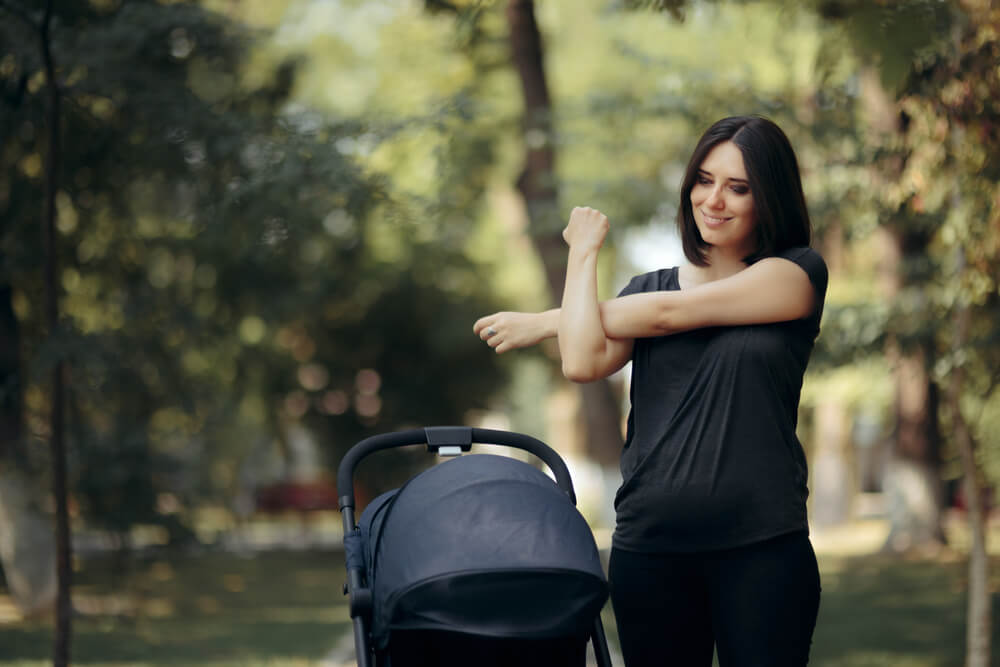The six weeks after delivery are known as the postpartum period for the new mother. Obviously, this is a beautiful and lively period, but it can also be a bit challenging considering the adjustment necessary. During this time, your doctor will want to schedule postpartum checkups while you get to connect and bond with your child.
A baby indeed requires your full attention, but that’s all the reason more to maintain good postpartum health. Never ignore your own postpartum care needs. And if you need an obstetrics specialist in Florida, don’t hesitate to contact us at University Park OB/GYN.
Postpartum Tips to Adjust to Motherhood

Most moms take time off from work for the first six weeks after delivery. This time frame allows the new normal to be established and adjusted. Babies require frequent attention, including feeding and diaper changes, which might disrupt their sleep schedule. This is far from fun and can quickly wear you out. The bright side is that the new routine will gradually become like second nature.
You can try the following postpartum care practices to make this process less stressful:
- Make sure to get enough sleep. To overcome fatigue and exhaustion, get as much rest as you can. Babies often need to eat every three hours. To ensure you get adequate sleep, try to nap when your baby does.
- Get help when you need it. Don’t be shy about accepting aid from loved ones during and after your postpartum period. Rest is essential for your recovery and postpartum mom care, and having someone help you around the house will be a huge relief. In-home assistance may take the form of friends or relatives making meals, running errands, or watching other kids.
- Make good food choices. Follow a nutritious diet to speed up recovery and consume more healthy grains, veggies, fruits, and protein. You need to drink more water, especially if you’re also breastfeeding.
- Get physically active. Check with your doctor when you can start working out again. The effort required for this should be minimal. It’s recommended that you take a stroll in the neighborhood. The revitalizing effect of a scenery change can be very beneficial.
Postpartum Mom Care Involves a Whole Family
The relationship between you and your partner shifts a bit as everyone learns to adjust to the new addition to the family. It can be frustrating when you have less time for yourselves after giving birth, but there are methods to get through it.
First and foremost, try not to rush things. Recognize that the arrival of a new baby brings adjustments to every relationship. There is a learning curve, but you’ll get there. The first few days of caring for a baby are the most challenging, but things should improve quickly afterward.
Be open with each other and talk like a true family. Communicate with the person who feels left out and show empathy, whether it’s your spouse or one of your children. Although you and your spouse will spend most of your day caring for your baby, you should not feel guilty about taking some time for yourselves as part of relaxing postpartum care.
Baby Blues and Postpartum Depression
Baby blues is a common postpartum experience. This commonly occurs within the first week or so after giving birth and often lasts for two weeks or longer. Up to 80% of moms report feeling down or experiencing mood fluctuations shortly after giving birth. Most people don’t have constant symptoms, and those who do might experience different symptoms over time. Hormonal shifts are to blame for the baby blues, and the symptoms can be the following:
- Mood swings
- Irritable and restless behavior
- Sudden cry bursts
- Feeling of sadness
- Insomnia
Having baby blues is not the same as having postpartum depression. Depression after childbirth is diagnosed when signs and symptoms persist for longer than two weeks.
Negative emotions such as guilt, worthlessness, and a lack of interest in daily life may also be present. There are some cases of postpartum depression in which the mother withdraws from her family, loses interest in her infant child, and even considers harming the child.
In terms of postpartum care needs, the symptoms of postpartum depression can’t be ignored and need to be treated medically. A woman is at risk for developing postpartum depression up to a year after giving birth.
Postpartum Tips for Body Changes

After giving birth, your body will change, as well as your emotions. Be patient with yourself; losing weight takes time. If your doctor gives you the green light to start working out, start slow and build up to longer and harder sessions over time. Join an aerobics class, go for a swim, or go for a walk.
Consuming a diet rich in fresh produce, lean protein, and whole grains is an integral part of any weight loss program. Since breastfeeding improves your daily calorie burn, it can speed up your weight loss and get you back to your pre-pregnancy size. Don’t judge your progress against other mothers because of the varying rates at which they shed their baby weight.
Other potential body changes could be:
- Breast engorgement; the milk in your breasts will come a few days after delivery. It’s natural, although the engorgement (swelling) can be unpleasant. The state of engorgement can be expected to improve over time. If you’re experiencing pain in your breasts, try applying a cold or warm compress to the area for your postpartum mom care. When your nipples are dry and cracked, rub some nipple cream on them. When your body gets used to breastfeeding, your discomfort should go away.
- Constipation; drink lots of water and eat fiber-rich foods to get your digestive system going. Check with your doctor which drugs are risk-free to take. Fiber, over-the-counter treatments, and sitz baths can help alleviate the pain of hemorrhoids. The discomfort of having to urinate after giving birth can be reduced by drinking water. Kegel exercises are a great practice in your postpartum care to strengthen your pelvic floor and alleviate incontinence.
- Pelvic floor changes; during labor and delivery, the perineum between your rectus and vagina often strains and tears. To facilitate labor, your doctor may make an incision there. To aid recovery, try sitting on a pillow, doing Kegel exercises, and using towel-wrapped ice packs on the area.
- Sweating, the hormonal shifts that occur after giving birth, can bring night sweats. For these postpartum care needs, it would be best to get rid of warm and heavy blankets and use linens made of natural material.
- Uterine pain; cramps are often associated with a uterus contracting after birth. Inquire about safe painkillers from your doctor. In time, you will feel better.
- Vaginal discharge; in the weeks following childbirth, it’s normal to experience vaginal discharge. Until the bleeding stops, use sanitary napkins. This way, the uterus gets cleansed of old blood and tissue. Further postpartum tips on the matter forbid the use of tampons and douches until the doctor allows it.
Having a baby can shake up the family dynamic and daily routine, but you’ll get used to it soon enough. If you’re worried about your mental health, the health of your baby, or your recovery, don’t hold back from discussing your worries with your doctor. You can always contact us at University Park OB/GYN.


